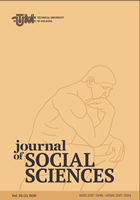ANALYSIS OF THEORETIC CONSTRUCTION OF GUILT IN LAW: ESSENCE, CONTENT AND FORM
ANALYSIS OF THEORETIC CONSTRUCTION OF GUILT IN LAW: ESSENCE, CONTENT AND FORM
Author(s): Viorica UrsuSubject(s): Criminal Law, Human Rights and Humanitarian Law, Philosophy of Law, Sociology of Law
Published by: Universitatea Tehnică a Moldovei
Keywords: legal liability; guilt; conscience; will; reason; purpose; intention; fault;
Summary/Abstract: The guilt is the mandatory element for any form of legal liability. Legal liability is excluded in the absence of guilt. However, we cannot say that guilt is the element that delimits the legal sphere from illegal one, it is rather the element that delimits the responsibility from non-responsibility. An apparently unlawful act does not imply liability in the absence of the element of guilt. The analysis of guilt concept is a major current issue due to the reasons set out in this article. This, however, does not mean that we want to put aside the already established ideas and create our own theory of legal guilt. On the contrary, the already known ideas aroused additional ideas that come to help in the development of theoretical solutions that meet the current needs. The legal reality is so changeable that the legislative gaps, even in this area, are inevitable. Therefore, knowing the essential elements of guilt concept can facilitate the creation of appropriate policies to reduce the antisocial phenomenon. And these essential elements of guilt make up its legal construction. The main components of the theoretical construction of guilt (its elements) are the essence, the content, the form. Thus, this article will analyse these main elements of guilt, demonstrating their individuality and their own characteristics, as well as the interconnection between them.
Journal: Journal of Social Sciences
- Issue Year: III/2020
- Issue No: 2
- Page Range: 90-116
- Page Count: 27
- Language: Romanian

